Indigenous Governance Database
IGD Database Search
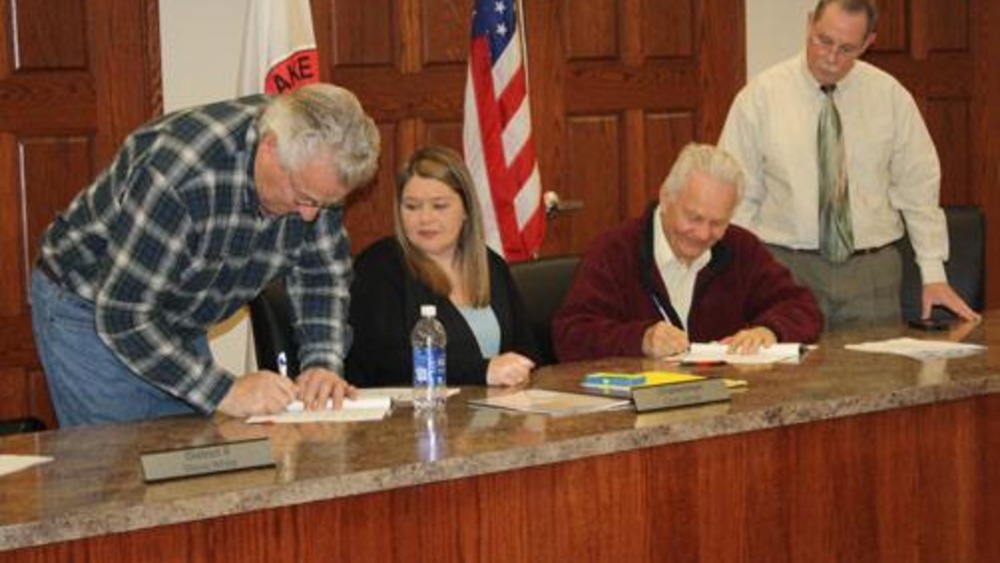
Cass County Board, Leech Lake Tribal Council hold productive joint discussions, first in three-plus years
A wide-ranging conversation between Leech Lake Tribal Council and Cass County Board of Commissioners, held Friday at the new Leech Lake Government Center in Cass Lake, concluded with the signing of a Memorandum of Understanding (MOU) between the two governmental units. The MOU is designed to…
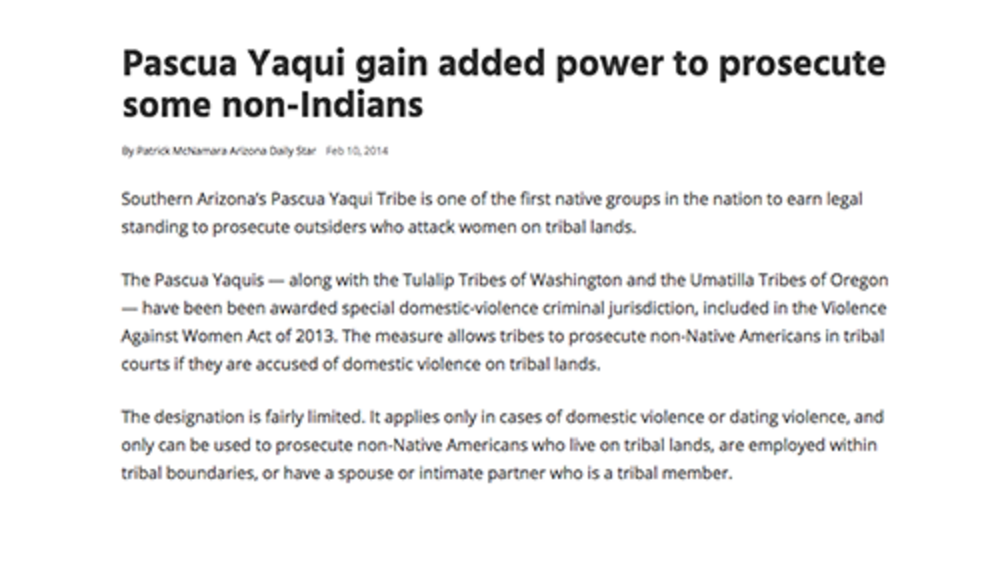
Pascua Yaqui gain added power to prosecute some non-Indians
Southern Arizona’s Pascua Yaqui Tribe is one of the first Native nations in the country to earn legal standing to prosecute outsiders who attack women on tribal lands. The Pascua Yaquis – along with the Tulalip Tribes of Washington and the Umatilla Tribes of Oregon – have been been awarded special…
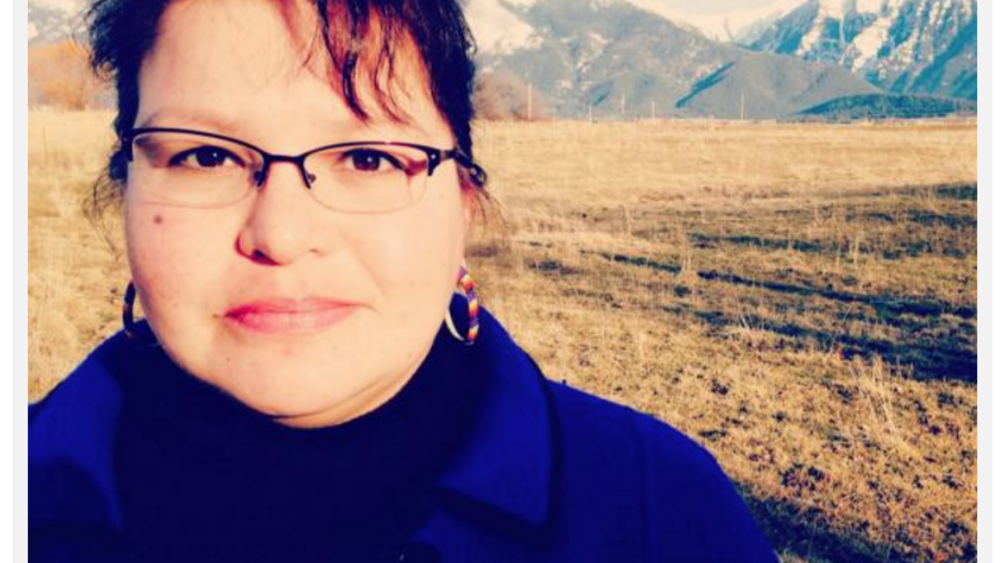
Living Her Dream: Eldena Bear Don't Walk Discusses Her Law Career
Eldena Bear Don’t Walk is living out her childhood dream. The youngster who imagined one day becoming a lawyer has done exactly that – and more. She has been an appellate judge for eight years, serving almost every tribe in Montana. At the St. Ignatius-based Bear Don’t Walk Law Office, she works as…

Building better homes in Indian Country
There's no other house like it on the Oglala Sioux's 2 million-acre Pine Ridge Reservation: Its walls are insulated by 18-inch strawbales rather than plastic sheeting, and its radiant-floor heating is much cheaper than the typical propane or electric. A frost-protected shallow foundation inhibits…
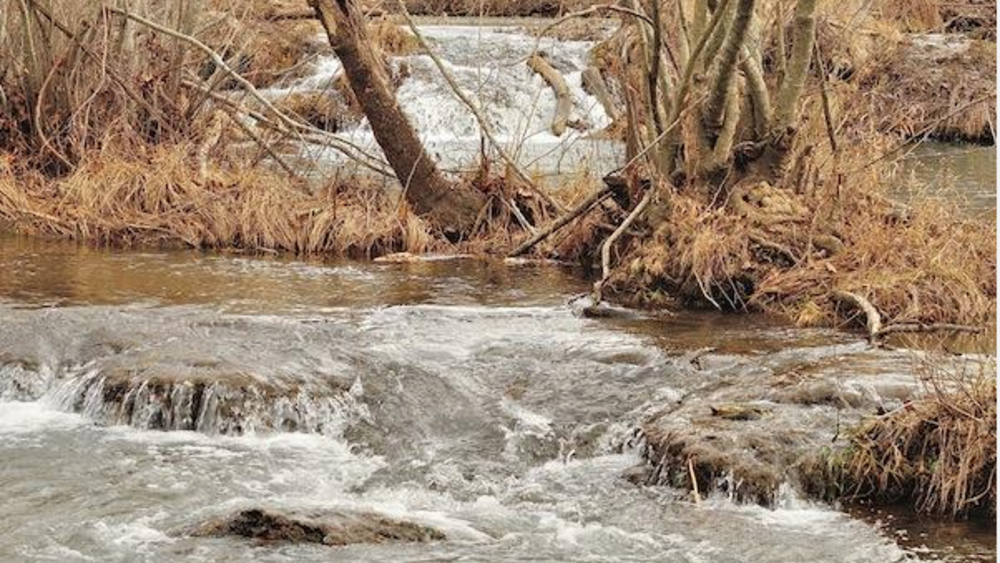
Chickasaw Fishery Saves Endangered Species While Sustaining Fishermen and Tourism
Nothing elevates the hope and heart rate of an angler more than hearing that first predawn “ZWIIINNGGG” of a casting reel as fishing line slices through the early morning air and the lure plops into the water. Whether it’s the first or last day of the season, fishermen hope that is a dinner bell…
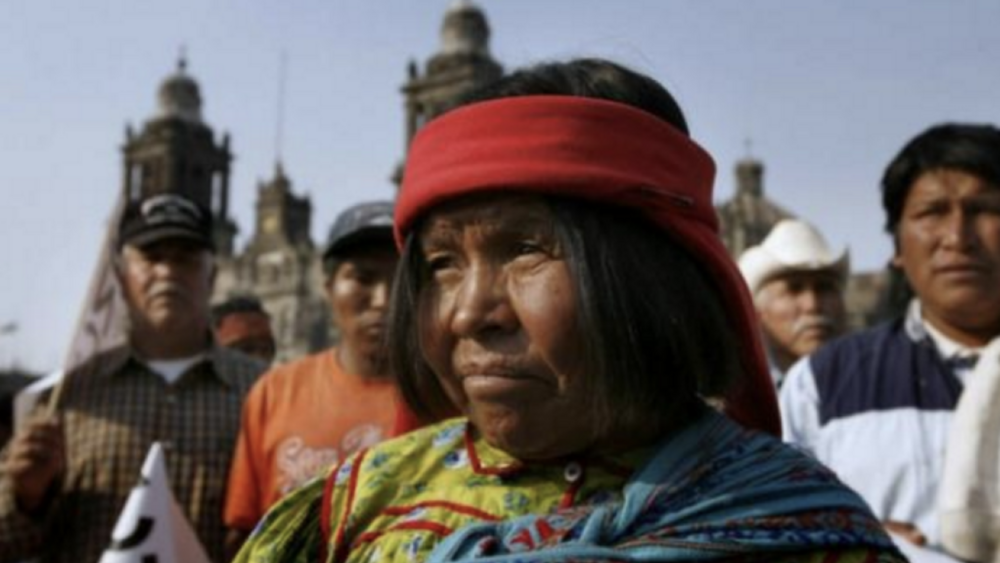
Preserving Indigenous Democracy
When Europeans first came to the Americas they took note of the democratic processes they observed in most indigenous nations. Indigenous political relations were usually decentralized, consensus based, and inclusive. Indigenous democracies may not seem remarkable by contemporary standards, but…
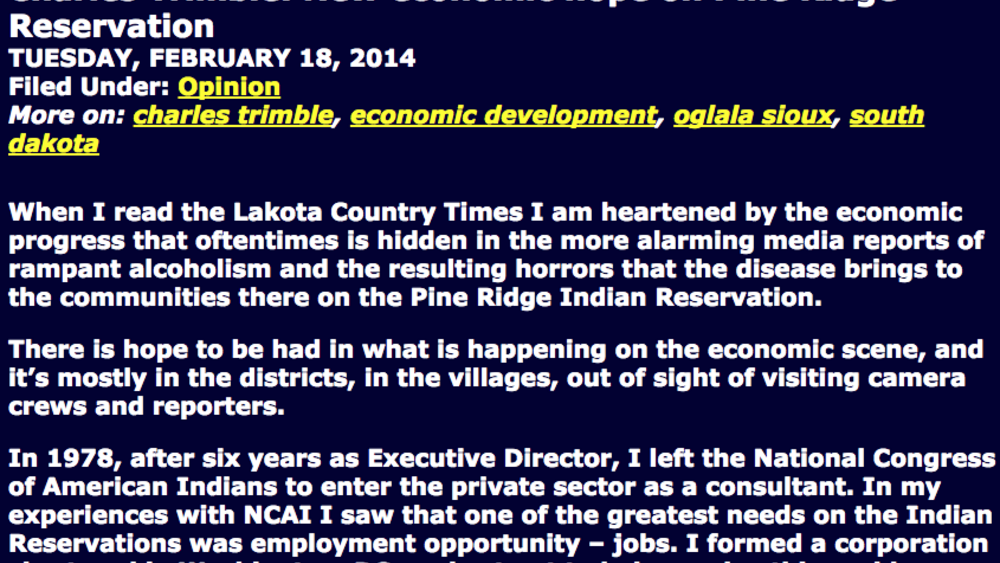
New economic hope on Pine Ridge Reservation
When I read the Lakota Country Times I am heartened by the economic progress that oftentimes is hidden in the more alarming media reports of rampant alcoholism and the resulting horrors that the disease brings to the communities there on the Pine Ridge Indian Reservation. There is hope to be had…
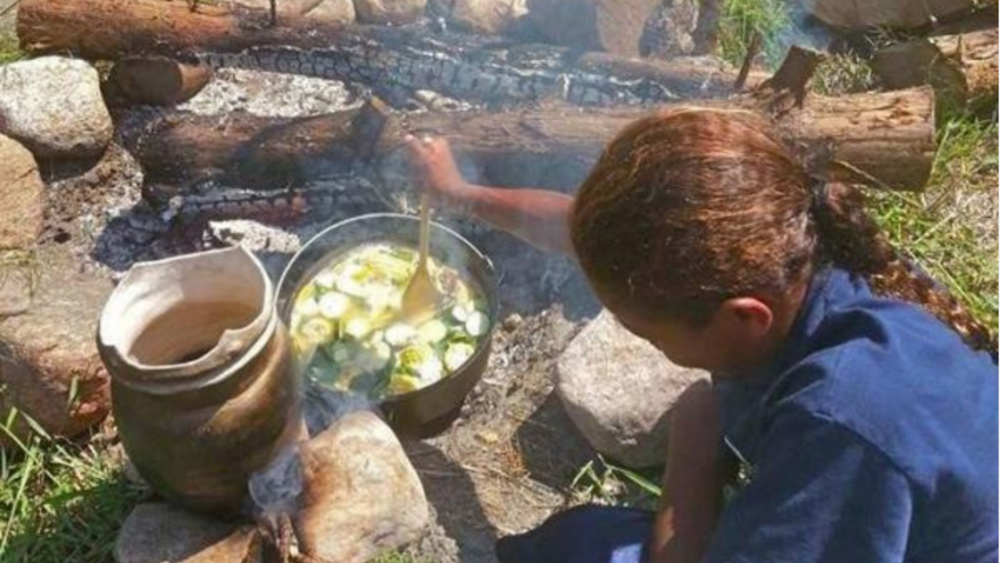
Sleeping Language Waking Up Thanks to Wampanoag Reclamation Project
It’s been more than 300 years since Wampanoag was the primary spoken language in Cape Cod. But, if Wampanoag tribal members keep their current pace, that may not be true for much longer. Tribal members have been signing up for classes with the Wampanoag Language Reclamation Project while families…

Cherokee Nation Raises Tribal Minimum Wage, More Than $2 Above Federal
Cherokee Nation Principal Chief Bill John Baker signed an executive order on February 21 raising the Cherokee Nation’s minimum wage to $9.50 over the next two years. The current Cherokee Nation minimum wage stands at $9 per hour, already well above the federal minimum wage of $7.25 per hour...
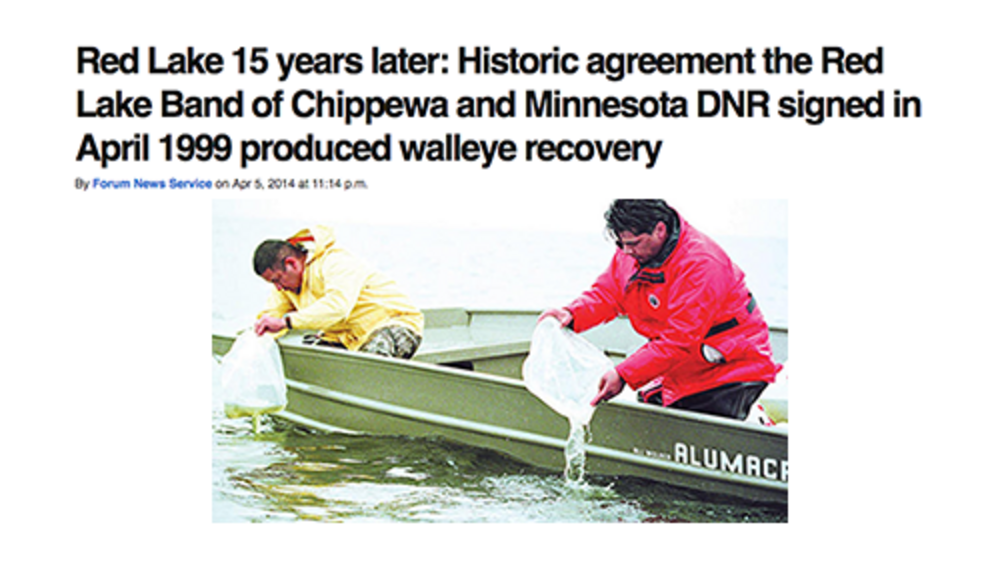
Red Lake 15 years later: Historic agreement the Red Lake Band of Chippewa and Minnesota DNR signed in April 1999 produced walleye recovery
As Al Pemberton recalls, it was about three years after the Red Lake Band of Chippewa and the Minnesota Department of Natural Resources signed an agreement to restore walleye populations in Upper and Lower Red lakes that he saw the true potential for the big lakes’ recovery. The agreement, which…
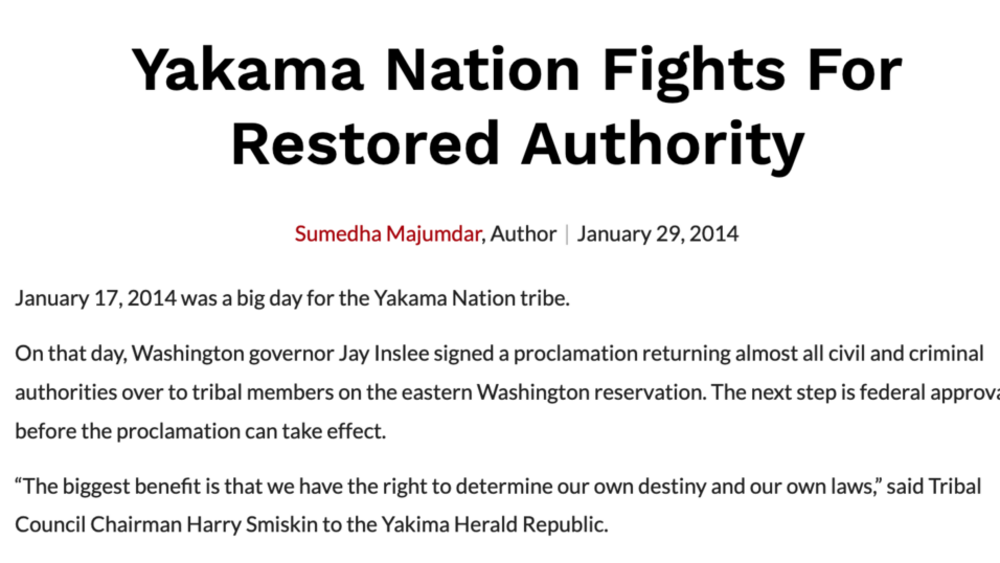
Yakama Nation Fights For Restored Authority
January 17, 2014 was a big day for the Yakama Nation tribe. On that day, Washington governor Jay Inslee signed a proclamation returning almost all civil and criminal authorities over to tribal members on the eastern Washington reservation. The next step is federal approval before the proclamation…
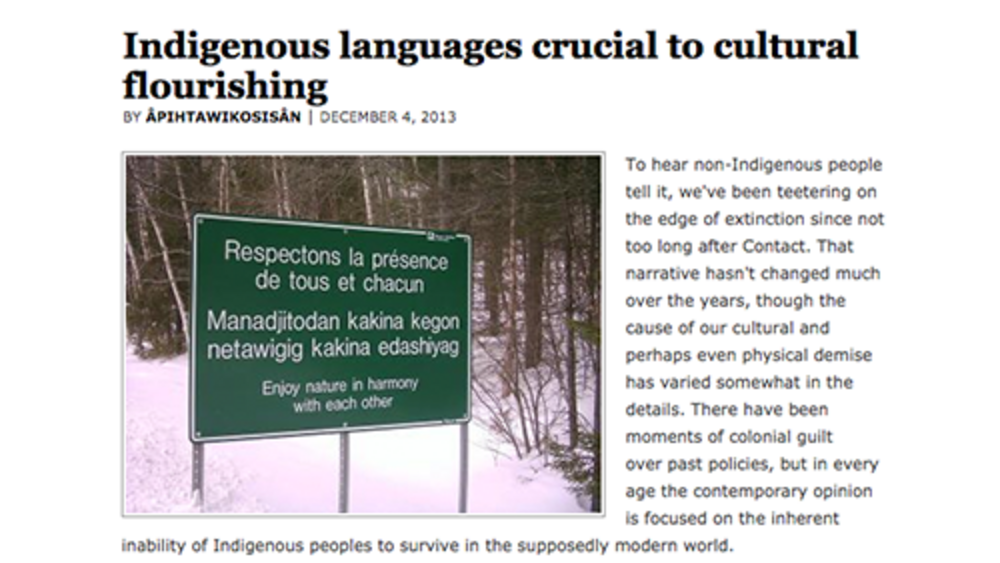
Indigenous languages crucial to cultural flourishing
I believe our languages to be so central to who we are as Indigenous peoples, that I cannot discuss our present or our future without reference to languages. The oppression we have faced, and continue to face, does not define us in the way our languages do. Our resilience, and the fact that we have…
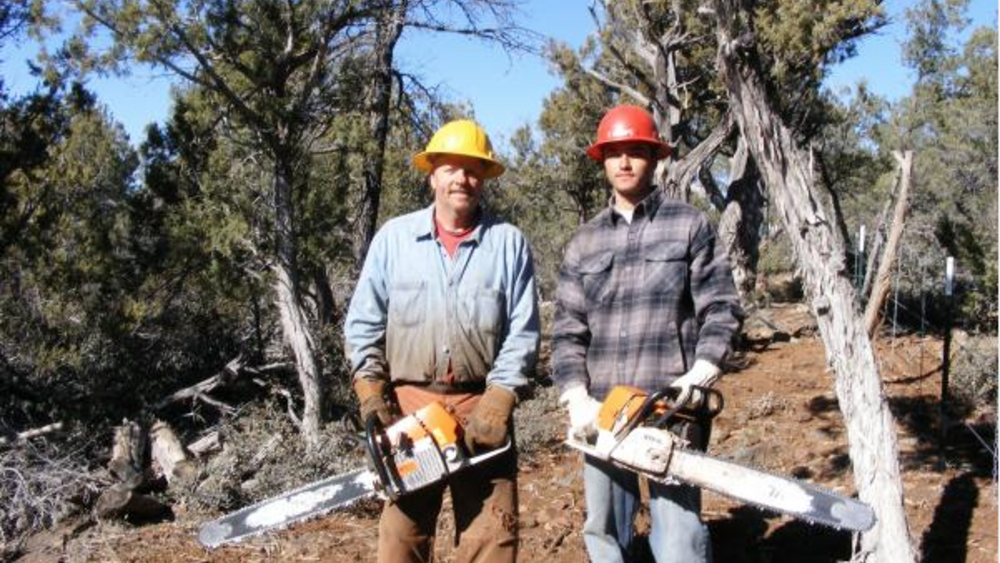
Spirit of Enterprise: Apache Warrior Stokes his Entrepreneurial Fires With a Firefighting Business
At 18, Clyde Campbell worked on the engine crew for the U.S. Forest Service and later, the Hot Shot crew in Payson, Ariz., fighting fires. Though the work was dangerous, difficult and demanding at times, Campbell said he loved every minute of it. “It was fun building trails and working out in the…
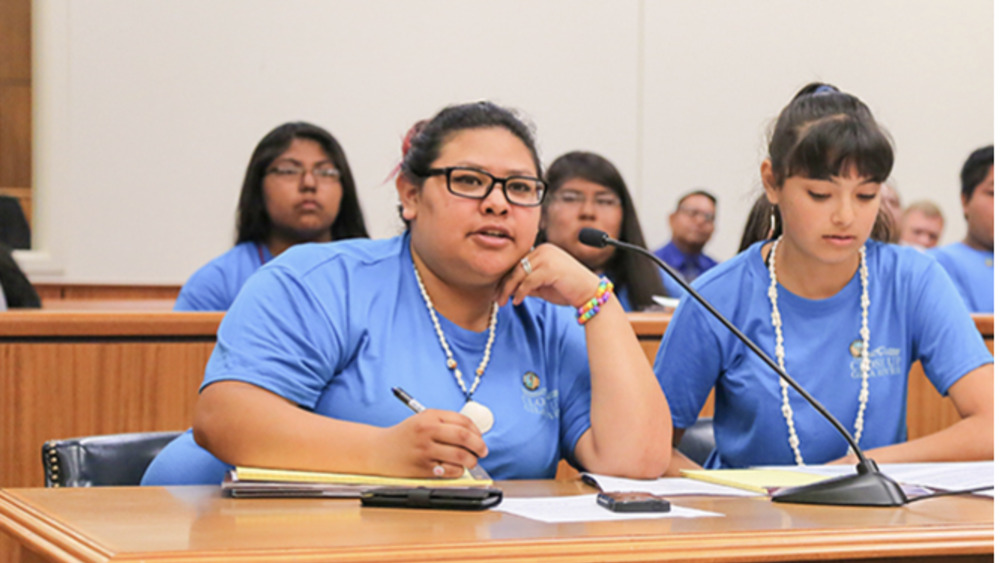
Students Get Hands-On Learning with Gila River Close Up Program
A group of young Community members from various local high schools participated in the Close Up program and received an in-depth view into the world of tribal government. The Close Up program is a yearly endeavor that is designed to give students a thorough lesson on the inner mechanics and…

Disenrollment Demands Serious Attention by All Sovereign Nations
For most people, their sense of who they are–their identity–is at least partially defined from connection to others and to a community. When individuals are forced to sever those connections, the consequences can be devastating. Unfortunately, all too often in tribal disenrollment conflicts–like…

Collectively Managing Allotment Lands Is Better
Indian allotment holders are not making enough money from their allotments. One way for tribal allotment holders to gain more economic income from their allotments is to organize a corporation under tribal law and collectively manage allotted lands in order to gain more income for allotment holders…
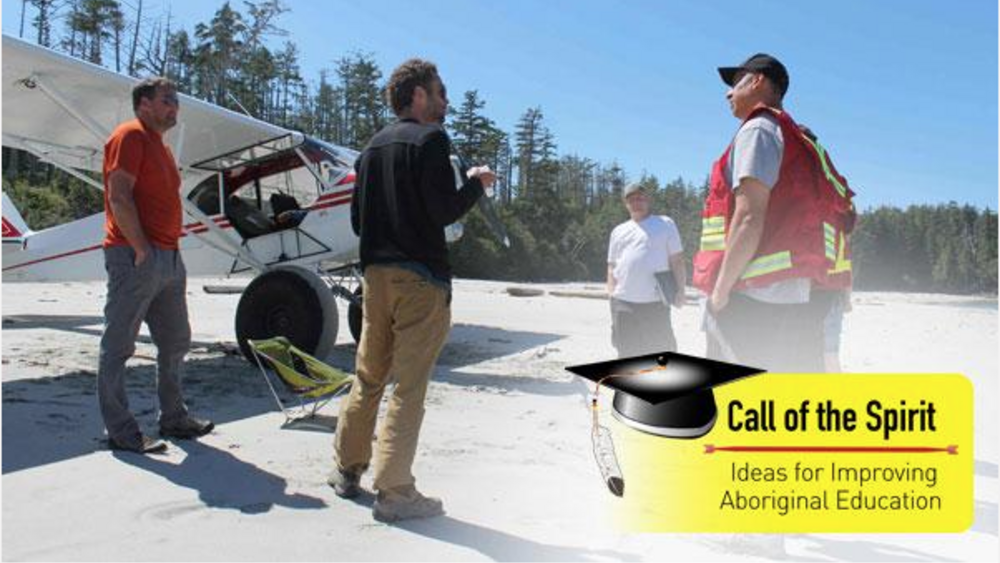
How First Nations Guardians Defend British Columbia's Fragile Coast
B.C.'s Central Coast houses the Great Bear Rainforest, the largest intact temperate rainforest left in the world. Attracting environmentalists, tourists, big game hunters, and natural resource developers from all over the globe, this fragile and much-coveted ecosystem has been home to First Nations…

Authenticity: Ethnic Indians, non-Indians and Reservation Indians
Authenticity is a puzzling feature of contemporary Indian life. Growing up on an Indian reservation, I rarely encountered challenges to one’s identity as an Indian person. People within the reservation community knew most of the families. If they didn’t know the family connections of a specific…

Professor Breaks Down Sovereignty and Explains its Significance
Sovereignty is one of those terms we toss around without much thought. It is an important word within contemporary American Indian discussions. The term itself draws from legal, cultural, political, and historical traditions, and these traditions are connected to both European as well as Indigenous…

Cutting Edge Tech on the Rez
Bigger isn’t always better. Arizona’s Tohono O’odham Nation covers some 2.8 million acres, only a small portion of which is occupied by the successful San Xavier District’s Hi:kdan Business Park. The tribally chartered, Native-owned private business operates under the banner: “Moving Forward with…
Pagination
- First page
- …
- 56
- 57
- 58
- …
- Last page
